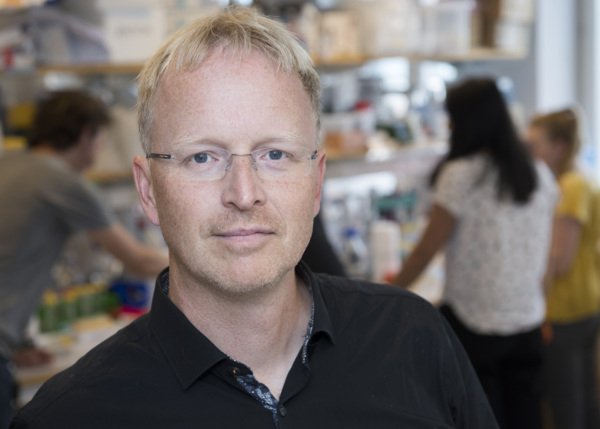The interaction between B cells and macrophages
Mikael Karlsson, Professor of Immunology at the Department of Microbiology, Tumor and Cell Biology, researches the regulation of the immune system and why it sometimes becomes disrupted, leading to disease. He is particularly interested in B cells and macrophages. His research adds to knowledge of autoimmune diseases and is also related to cancer.

The immune system is both a barrier that protects the body against attack and a caretaker that clears away the dead cells resulting from new tissue formation or injury. Professor Karlsson researches mechanisms that control these processes – and how they sometimes malfunction. He is particularly interested in B cells and macrophages and how these two cell types interact.
“The immune system must be able to differentiate between its defence function and its cleaning function,” says Professor Karlsson. “When it can’t, there’s a risk of autoimmune disease when signals linked to the clearing function over-activate the immune system so much that its starts to attack endogenous cells.”
Professor Karlsson’s group has discovered a mechanism for how the immune system normally avoids this eventuality: NKT cells make sure that the clearing does not lead to over-activation.
Cancer-related research
In recent years, Professor Karlsson’s interest in macrophages has also brought him round to cancer-related research.
“We read that other researchers found a close link between a certain type of macrophage that we had been studying and breast cancer, and this pricked our curiosity,” he says. “We discovered that the macrophage, in practice, abets cancer and then found a way to make it attack the tumour instead.”
This is a new and untried principle for cancer therapy, and has been tested by Professor Karlsson’s group on three kinds of tumour in mice, with promising results.
“We’re currently negotiating with some biotech companies on developing the concept into a therapy,” he says.
Text: Anders Nilsson, first published in the booklet 'From Cell to Society 2016'.
